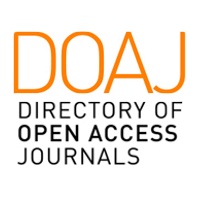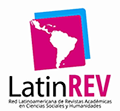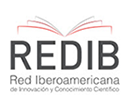A FORMAÇÃO INICIAL E CONTINUADA DAS PRIMEIRAS COORDENADORAS PEDAGÓGICAS DA REDE MUNICIPAL DE SANTO ANDRÉ (SP) COMO ELEMENTOS IDENTITÁRIOS
DOI:
https://doi.org/10.31639/rbpfp.v16.i35.e748Palavras-chave:
Identidade profissional, Coordenadora Pedagógica, Formação Inicial, Formação continuadaResumo
O presente artigo analisa a formação inicial e continuada das primeiras coordenadoras pedagógicas da rede municipal de Santo André como elementos que compõem a identidade destas profissionais, tendo como referência documental as entrevistas realizadas com as participantes desta pesquisa. O objetivo é identificar qual era a formação inicial das coordenadoras pedagógicas e como acontecia a formação continuada dessas profissionais para que desenvolvessem seu papel de acompanhamento pedagógico e formativo, considerando que a formação compõe um importante elemento na construção da identidade profissional. Dessa forma, elegemos uma abordagem qualitativa para realização desta pesquisa, com a aplicação de entrevistas semiestruturadas como instrumento de coleta de dados. Os resultados obtidos revelam que tanto a formação inicial quanto a continuada apresentam elementos comuns que representam a identidade profissional da coordenadora pedagógica da rede municipal de Santo André.
Downloads
Referências
APOLINÁRIO, F. Dicionário de metodologia científica. 2. ed. São Paulo: Atlas, 2011.
CÂNDIDO, L. G. A criação da rede municipal de Santo André: das primeiras escolas à implantação do Centro Educacional, Assistencial e Recreativo-CEAR (1954-1982). 179f. Dissertação de Mestrado – Pós graduação em Educação, Universidade Federal de São Paulo, Escola de Filosofia, Letras e Ciências Humanas, Guarulhos, 2022. Disponível em: https://repositorio.unifesp.br/handle/11600/67026; Acesso em 24 de abril. 2022.
DUBAR, C. A crise das identidades- a interpretação de uma mutação. Porto: Edições Afrontamento, 2006.
DUBAR, C. A socialização. Construção das identidades sociais e profissionais. Porto: Editora Portugal, 1997.
FERNANDEZ, M. Uma perspectiva histórica da construção da identidade da coordenadora pedagógica na rede municipal de Santo André (SP)- (1990-1998). 167 p. Dissertação (Mestrado em educação) – Programa de Pós-graduação em Educação, Universidade Nove de Julho, São Paulo, 2023. 167p.
LÜDKE, M.; ANDRÉ, M. E. D. A. Pesquisa em Educação: abordagens qualitativas. São Paulo: EPU, 1986.
MOITA, M. da C. Percursos de formação e trans-formação. In: NÓVOA, A. Vidas de professores. Porto: Porto Editora, 1995.
NÓVOA, A. Os professores e a sua formação num tempo de metamorfose na escola. Revista Educação & Realidade, Porto Alegre, v. 44, e84910, 2019. Disponível em: https://www.scielo.br/j/edreal/a/DfM3JL685vPJryp4BSqyPZt/. Acesso em: 20 de março 2023. DOI: https://doi.org/10.1590/2175-623684910
PLACCO, V. M. N. S.; ALMEIDA, L. R. de (Orgs.). O coordenador pedagógico e a legitimidade de sua atuação. 1. ed. São Paulo: Loyola, 2017.
PLACCO, V. M. N. S.; ALMEIDA, L. R. de (Orgs.). O coordenador pedagógico e os desafios da educação. São Paulo: Loyola, 2012.
SANTO ANDRÉ. [Prefeitura Municipal de Santo André]. Decreto Nº 11.583, de 28 de abril de 1987. Prefeitura Municipal de Santo André, Santo André, 1987. Disponível em: http://www4.cmsandre.sp.gov.br:9000/arquivo/4040.
SANTO ANDRÉ. [Prefeitura Municipal de Santo André]. Decreto nº 14.146, de 27 de abril de 1998. Fixa a composição da Rede de Ensino Municipal, altera designação relativa ao campo funcional das unidades escolares, e dá outras providências. Prefeitura Municipal de Santo André, Santo André, 1998. Disponível em: http://www4.cmsandre.sp.gov.br:9000/arquivo/6996.
SANTO ANDRÉ. Câmara Municipal de Santo André. Lei nº 6.833, de 15 de outubro de 1991. Dispõe sobre a organização administrativa do magistério municipal. D. Grande ABC, 16.10.91, Cad. B, pág. 6, 1991. Disponível em: http://www4.cmsandre.sp.gov.br:9000/arquivo/26565.
Downloads
Publicado
Como Citar
Edição
Seção
Licença
Copyright (c) 2024 Michele FERNANDEZ, Carlos BAUER (Autor)

Este trabalho está licenciado sob uma licença Creative Commons Attribution-NonCommercial-ShareAlike 4.0 International License.
Os direitos autorais pertencem exclusivamente aos autores. Os direitos de licenciamento utilizados pelo periódico é a licença Creative CommonsAttribution-NonCommercial 4.0 International (CC BY-NC-SA 4.0): são permitidos o compartilhamento (cópia e distribuição do material em qualquer meio ou formato) e adaptação (remix), transformação e criação de material a partir do conteúdo.































